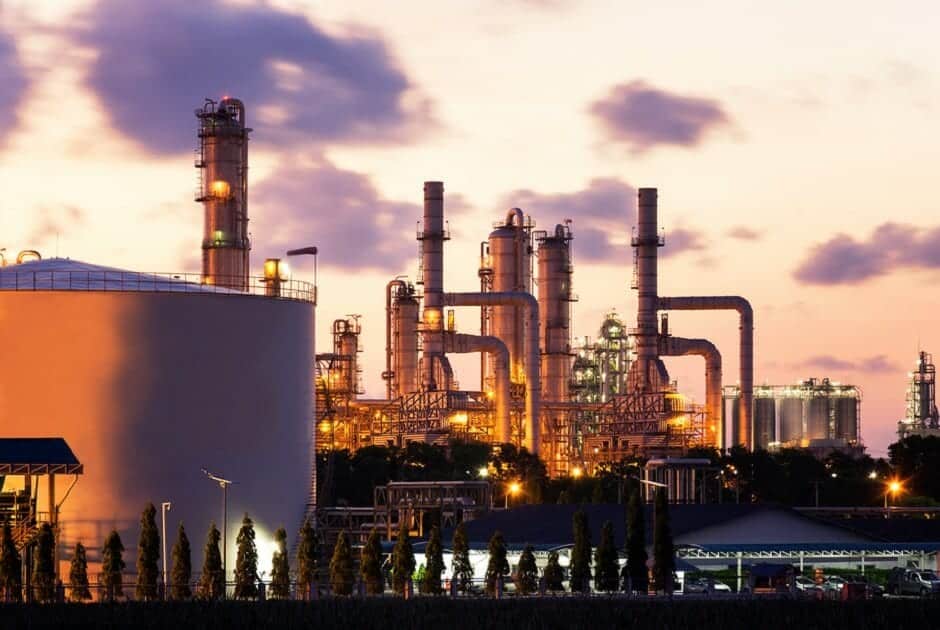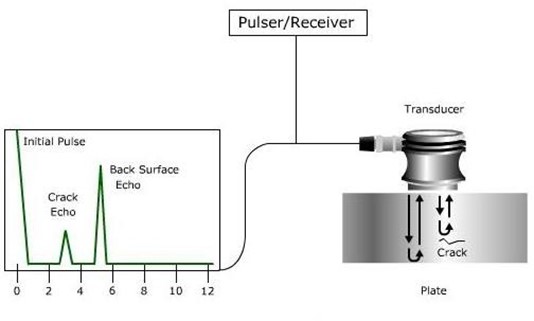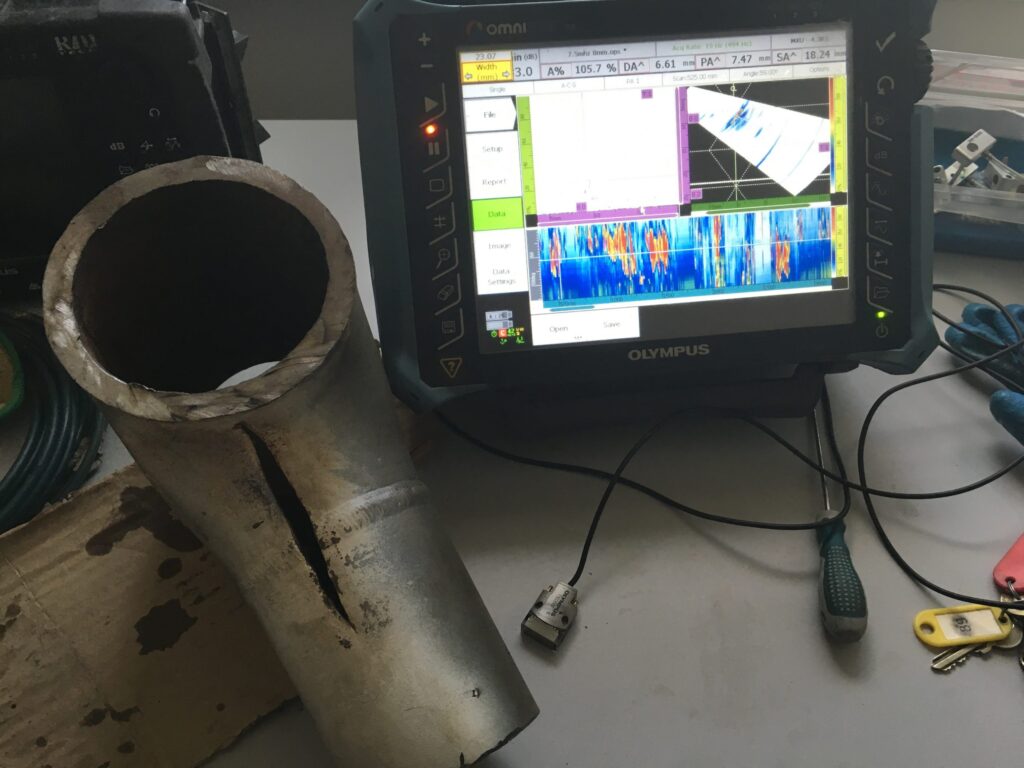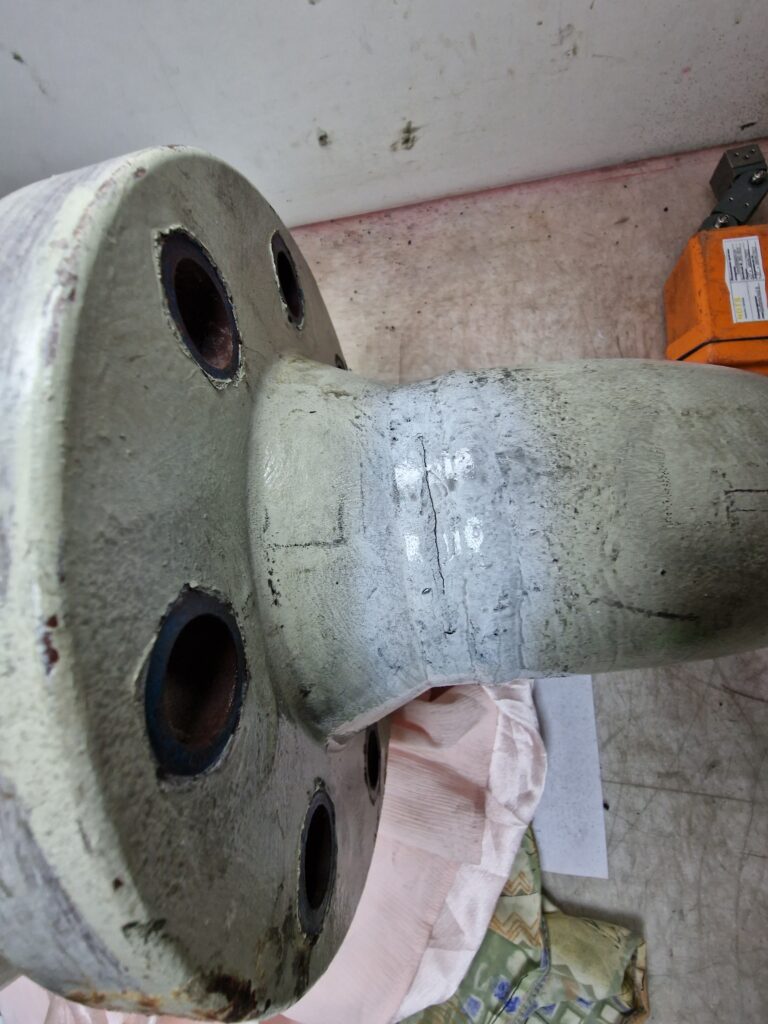List of welding codes and standards

American Society of Mechanical Engineers (ASME) welding codes
The American Society of Mechanical Engineers (ASME) Boiler and Pressure Vessel Code (BPVC) covers all aspects of design and manufacture of boilers and pressure vessels. All sections contain welding specifications, however most relevant information is contained in the following:
| Code | Description |
|---|---|
| ASME BPVC Section II | Part C: Specifications for Welding Rods, Electrodes, and Filler Metals.[1] |
| ASME BPVC Section V | Nondestructive Examination |
| ASME BPVC Section IX | Welding and Brazing Qualifications |
| ASME B16.25 | Buttwelding ends
magi |
American Welding Society (AWS) Standards
The American Welding Society (AWS) publishes over 240 AWS-developed codes, recommended practices and guides which are written in accordance with American National Standards Institute (ANSI) practices.[2] The following is a partial list of the more common publications:
| Standard Number† | Title |
|---|---|
| AWS A02.4 | Standard symbols for welding, brazing, and non-destructive examination |
| AWS A03.0 | Standard welding terms and definitions |
| AWS A05.1 | Specification for carbon steel electrodes for shielded metal arc welding |
| AWS A05.18 | Specification for carbon steel electrodes and rots for gas shielded arc welding |
| AWS B01.10 | Guide for the nondestructive examination of welds |
| AWS B02.1 | Specification for Welding Procedure and Performance Qualification |
| AWS D01.1 | Structural welding (steel) |
| AWS D01.2 | Structural welding (aluminum) |
| AWS D01.3 | Structural welding (sheet steel) |
| AWS D01.4 | Structural welding (reinforcing steel) |
| AWS D01.5 | Bridge welding |
| AWS D01.6 | Structural welding (stainless steel) |
| AWS D01.7 | Structural welding (strengthening and repair) |
| AWS D01.8 | Structural welding seismic supplement |
| AWS D01.9 | Structural welding (titanium) |
| AWS D08.1 | Automotive spot welding |
| AWS D08.6 | Automotive spot welding electrodes supplement |
| AWS D08.7 | Automotive spot welding recommendations supplement |
| AWS D08.8 | Automotive arc welding (steel) |
| AWS D08.9 | Automotive spot weld testing |
| AWS D08.14 | Automotive arc welding (aluminum) |
| AWS D09.1 | Sheet metal welding |
| AWS D10.10 | Heating practices for pipe and tube |
| AWS D10.11 | Root pass welding for pipe |
| AWS D10.12 | Pipe welding (mild steel) |
| AWS D10.13 | Tube brazing (copper) |
| AWS D10.18 | Pipe welding (stainless steel) |
| AWS D11.2 | Welding (cast iron) |
| AWS D14.1 | Industrial mill crane welding |
| AWS D14.3 | Earthmoving & agricultural equipment welding |
| AWS D14.4 | Machinery joint welding |
| AWS D14.5 | Press welding |
| AWS D14.6 | Industrial mill roll surfacing |
| AWS D15.1 | Railroad welding |
| AWS D15.2 | Railroad welding practice supplement |
| AWS D16.1 | Robotic arc welding safety |
| AWS D16.2 | Robotic arc welding system installation |
| AWS D16.3 | Robotic arc welding risk assessment |
| AWS D16.4 | Robotic arc welder operator qualification |
| AWS D17.1 | Aerospace fusion welding |
| AWS D17.2 | Aerospace resistance welding |
| AWS D18.1 | Hygienic tube welding (stainless steel) |
| AWS D18.2 | Stainless steel tube discoloration guide |
| AWS D18.3 | Hygienic equipment welding |
| †The zero after the first letter is only placed there so the table can be sorted. i.e. D01.1 is actually D1.1). | |
American Petroleum Institute (API) Standards
The American Petroleum Institute (API) oldest and most successful programs is in the development of API standards which started with its first standard in 1924. API maintains over 500 standards covering the oil and gas field.[3] The following is a partial list specific to welding:
| Standard Number | Description |
|---|---|
| API RP 577 | Welding Inspection and Metallurgy |
| API 1104 | Welding of pipelines and related facilities |
Australian / New Zealand (AS/NZS) Standards
Standards Australia is the body responsible for the development, maintenance and publication of Australian Standards.[4] The following is a partial list specific to welding:
| Standard Number | Description |
|---|---|
| AS/NZS 1554.1 | Structural steel welding – Welding of steel structures |
| AS/NZS 1554.2 | Structural steel welding – Stud welding (steel studs to steel) |
| AS/NZS 1554.3 | Structural steel welding – Welding of reinforcing steel |
| AS/NZS 1554.4 | Structural steel welding – Welding of high strength quenched and tempered steels |
| AS/NZS 1554.5 | Structural steel welding – Welding of steel structures subject to high levels of fatigue loading |
| AS/NZS 1554.6 | Structural steel welding – Welding stainless steels for structural purposes |
| AS/NZS 1554.7 | Structural steel welding – Welding of sheet steel structures |
| AS/NZS 3992 | Pressure equipment – Welding and brazing qualification |
Canadian Standards Association (CSA) Standards
The Canadian Standards Association (CSA) is responsible for the development, maintenance and publication of CSA standards.[5] The following is a partial list specific to welding:
| Standard Number | Description |
| CAN/CSA-G401-07 | Corrugated Steel Pipe Products |
| CAN/CSA-ISO 14341:11 | Welding consumables – Wire electrodes and weld deposits for gas shielded metal arc welding of non alloy and fine grain steels – |
| CAN/CSA-W117.2-06 (R2011) | Safety in Welding, Cutting and Allied Processes |
| G40.20-04/G40.21-04 (R2009) | General Requirements for Rolled or Welded Structural Quality Steel/ Structural Quality Steel |
| W178.1-08 | Certification of Welding Inspection Organizations |
| W178.2-08 | Certification of Welding Inspectors |
| W47.1-09 | Certification of companies for fusion welding of steel |
| W47.2-11 | Certification of companies for fusion welding of aluminum |
| W48-06 (R2011) | Filler Metals and Allied Materials for Metal Arc Welding |
| W55.3-08 | Certification of companies for resistance welding of steel and aluminum |
| W59-13 | Welded Steel Construction (Metal Arc Welding) |
| W59.2-M1991 (R2008) | Welded Aluminum Construction |
| Z662-11 | Oil and Gas Pipeline Systems |
British Standards (BS)
British Standards are developed, maintained and published by BSI Standards which is UK’s National Standards Body.[6] The following is a partial list of standards specific to welding:
| Standard Number | Description |
|---|---|
| BS 499-1 | Welding terms and symbols. Glossary for welding, brazing and thermal cutting |
| BS 499-2C | Welding terms and symbols. European arc welding symbols in chart form |
| BS 2633 | Specification for Class I arc welding of ferritic steel pipework for carrying fluids |
| BS 2971 | Specification for class II arc welding of carbon steel pipework for carrying fluids |
| BS 4515-1 | Specification for welding of steel pipelines on land and offshore – Part 1: Carbon and carbon manganese steel pipelines |
| BS 4515-2 | Specification for welding of steel pipelines on land and offshore. Duplex stainless steel pipelines |
| PD 6705-2 | Structural use of steel and aluminium. Recommendations for the execution of steel bridges to BS EN 1090-2 |
| PD 6705-3 | Structural use of steel and aluminium. Recommendations for the execution of aluminium structures to BS EN 1090-3 |
International Organization for Standardization (ISO) Standards
International Organization for Standardization (ISO) has developed over 18500 standards and over 1100 new standards are published every year.[7] The following is a partial list of the standards specific to welding:
| Standard Number | Description |
|---|---|
| ISO 2553 | Welded, brazed and soldered joints – symbolic representation on drawings (1992) |
| ISO 2560 | Welding consumables. Covered electrodes for manual metal arc welding of non-alloy and fine grain steels. Classification |
| ISO 3580 | Covered electrodes for manual arc welding of creep-resisting steels – Code of symbols for identification |
| ISO 3581 | Covered electrodes for manual arc welding of stainless and other similar high alloy steels – Code of symbols for identification |
| ISO 3834 | Quality requirements for fusion welding of metallic materials, five parts. |
| ISO 4063 | Welding and allied processes – Nomenclature of processes and reference numbers |
| ISO 5817 | Welding. Fusion-welded joints in steel, nickel, titanium and their alloys (beam welding excluded). Quality levels for imperfections |
| ISO 6520-1 | Welding and allied processes — Classification of geometric imperfections in metallic materials — Part 1: Fusion welding |
| ISO 6520-2 | Welding and allied processes — Classification of geometric imperfections in metallic materials — Part 2: Welding with pressure |
| ISO 6947 | Welds. Working positions. Definitions of angles of slope and rotation |
| ISO 9606 | Qualification test of welders — Fusion welding, parts 1 to 5 |
| ISO 9692-1 | Welding and allied processes. Recommendations for joint preparation. Manual metal-arc welding, gas-shielded metal-arc welding, gas welding, TIG welding and beam welding of steels |
| ISO 9692-2 | Welding and allied processes. Joint preparation. Submerged arc welding of steels |
| ISO 9692-3 | Welding and allied processes. Joint preparation. Part 3: TIG and MIG welding of aluminium and its alloys |
| ISO 13847 | Petroleum and natural gas industries – Pipeline transportation systems – Welding of pipelines |
| ISO 13916 | Welding – Guidance on the measurement of preheating temperature, interpass temperature and preheat mainteanance temperature |
| ISO 13918 | Welding – Studs and ceramic ferrules for arc stud welding |
| ISO 13919-1 | Welding – Electron and laser-beam welded joints – Guidance on quality level for imperfections – Part 1: Steel |
| ISO 13919-2 | Welding – Electron and laser-beam welded joints – Guidance on quality level for imperfections – Part 2: Aluminium and its weldable alloys |
| ISO 13920 | Welding – General tolerances for welded constructions – Dimensions for lengths and angles – Shape and position |
| ISO 14112 | Gas welding equipment – Small kits for gas brazing and welding |
| ISO 14175 | Welding consumables — Gases and gas mixtures for fusion welding and allied processes. Replaced EN 439:1994 in Europe. |
| ISO 14341 | Welding consumables. Wire electrodes and deposits for gas shielded metal arc welding of non alloy and fine grain steels. Classification |
| ISO 14554 | Resistance welding |
| ISO 14744 | Electron beam welding, six parts |
| ISO 15607 | Specification and qualification of welding procedures for metallic materials – General rules |
| ISO/TR 15608 | Welding – Guidelines for a metallic material grouping system |
| ISO 15609 | Specification and qualification of welding procedures for metallic materials – Welding procedure specification, five parts. |
| ISO 15610 | Specification and qualification of welding procedures for metallic materials — Qualification based on tested welding consumables |
| ISO 15611 | Specification and qualification of welding procedures for metallic materials — Qualification based on previous welding experience |
| ISO 15612 | Specification and qualification of welding procedures for metallic materials — Qualification by adoption of a standard welding procedure |
| ISO 15613 | Specification and qualification of welding procedures for metallic materials — Qualification based on pre-production welding test |
| ISO 15614 | Specification and qualification of welding procedures for metallic materials – Welding procedure test, 13 parts. |
| ISO 15615 | Gas welding equipment. Acetylene manifold systems for welding, cutting and allied processes. Safety requirements in high-pressure devices |
| ISO 15618-1 | Qualification testing of welders for under-water welding. Diver-welders for hyperbaric wet welding |
| ISO 15618-2 | Qualification testing of welders for under-water welding. Diver-welders and welding operators for hyperbaric dry welding |
| ISO 17635 | Non-destructive testing of welds. General rules for metallic materials |
| ISO/TR 20172 | Welding — Grouping systems for materials — European materials |
| ISO/TR 20173 | Welding — Grouping systems for materials — American materials |
| ISO/TR 20174 | Welding — Grouping systems for materials — Japanese materials |
| ISO 24394 | Welding for aerospace applications. Qualification test for welders and welding operators. Fusion welding of metallic components |
European Union (CEN) standards
The European Committee for Standardization (CEN) had issued numerous standards covering welding processes, which unified and replaced former national standards. Of the former national standards, those issued by BSI and DIN were widely used outside their countries of origin. After the Vienna Agreement with ISO, CEN has replaced most of them with equivalent ISO standards (EN ISO series).[8]
| Standard Number | Description |
|---|---|
| EN 287-1 | Qualification test of welders — Fusion welding — Part 1: Steels[9] [10] |
| EN 1090-1 | Execution of steel structures and aluminium structures – Part 1: Requirements for conformity assessment of structural components |
| EN 1090-2 | Execution of steel structures and aluminium structures – Part 2: Technical requirements for steel structures |
| EN 1090-3 | Execution of steel structures and aluminium structures – Part 3: Technical requirements for aluminium structures |
| EN 1011-1 | Welding — Recommendations for welding of metallic materials — Part 1: General guidance for arc welding |
| EN 1011-2 | Welding — Recommendations for welding of metallic materials — Part 2: Arc welding of ferritic steels |
| EN 1011-3 | Welding — Recommendations for welding of metallic materials — Part 3: Arc welding of stainless steels |
| EN 1011-4 | Welding — Recommendations for welding of metallic materials — Part 4: Arc welding of aluminium and aluminium alloys |
| EN 1011-5 | Welding. Recommendations for welding of metallic materials. Welding of clad steel |
| EN 1011-6 | Welding. Recommendations for welding of metallic materials. Laser beam welding |
| EN 1011-7 | Welding — Recommendations for welding of metallic materials — Part 7: Electron beam welding |
| EN 1011-8 | Welding. Recommendations for welding of metallic materials. Welding of cast irons |
| EN 1418 | Welding personnel. Approval testing of welding operators for fusion welding and resistance weld setters for fully mechanized and automatic welding of metallic materials |
| EN 1708-1 | Welding. Basic welded joint details in steel. Pressurized components. |
| EN 1708-2 | Welding. Basic weld joint details in steel. Non-internal pressurized components. |
| EN 1708-3 | Welding. Basic weld joint details in steel. Clad, buttered and lined pressurized components. |
| EN 1993-1-8 | Eurocode 3: Design of steel structures – Part 1-8: General – Design of joints |
| EN 13133 | Brazing – Brazer approval |
| EN 22553 | Welded, brazed and soldered joints – Symbolic representation on drawings. (CEN version of ISO 2553) |
Additional requirements for welding exist in CEN codes and standards for specific products, like EN 12952, EN 12953, EN 13445, EN 13480, etc.
German Standards (DIN and others)
NA 092 is the Standards Committee for welding and allied processes (NAS) at DIN Deutsches Institut für Normung e. V.[11] The following is a partial list of DIN welding standards:
| Code | Description |
|---|---|
| DIN 1910-100 | Welding; terms dependent on materials for metal welding |
| SEW 088 | Schweißgeeignete Feinkornbaustähle – Richtlinien für die Verarbeitung besonders für das Schmelzschweißen”, Stahlinstitut VDEh |
| Merkblatt DVS 0916 | Metall-Schutzgasschwißen von Feinkornbaustählen”, Deutsche Verband für Schweißtechnik e.V. |




Responses